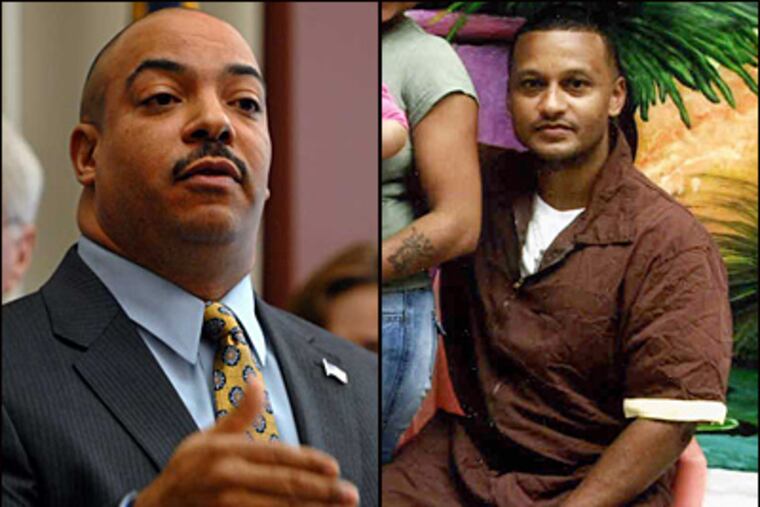Stu Bykofsky: Let's use 'injustice' in a sentence
D ISTRICT ATTORNEY Seth Williams ended 2011 with a reluctant, but prudent, decision to abandon attempts to reinstate the death penalty for cop-killer Mumia Abu-Jamal.

D ISTRICT ATTORNEY Seth Williams ended 2011 with a reluctant, but prudent, decision to abandon attempts to reinstate the death penalty for cop-killer Mumia Abu-Jamal.
He seems incapable of making another prudent decision - to stop fighting appeals to correct a wrongly imposed life sentence.
For 22 years, Marcus Perez has languished behind the gray walls of Graterford. Now 41, he's been denied justice, in appeal after appeal, first by "tough cookie" D.A. Lynne Abraham and now by mule-stubborn Williams, who remains blind to facts, deaf to questions and mute on explanations.
Perez pleaded guilty to a 1989 homicide in exchange for a 17 1/2- to-35-year sentence that was explained to him by Common Pleas Judge Theodore McKee in 1990.
Instead, Perez got life without parole, even though McKee had told Perez he would be eligible for parole in 15 years.
"I was dead wrong," I was told by McKee, a respected jurist who has since been elevated to chief judge of U.S. Third Circuit Court of Appeals.
For two decades, Perez has been paying for McKee's mistake, and filing appeals under the Post Conviction Relief Act to get the sentence he was promised.
For two decades, Philadelphia district attorneys have been opposing his appeals.
Last summer, Daniel McGarrigle, a lawyer with the Henry Law Firm, filed a sixth appeal, reflexively opposed by Williams. McGarrigle filed a response on Friday to the D.A.'s motion to dismiss before Common Pleas Judge Glenn Bronson.
Bronson can help undo the miscarriage of justice.
The D.A. uses a portion of the trial transcript to fight the appeals, but the transcript was tampered with.
Four years after Perez's sentencing hearing, the D.A.'s office got the transcript changed in a way that undercut the basis of his appeals. Judges tell me that changes in the transcript years after the fact are incredibly unusual.
Worse, the transcript "correction" was made outside the rules. To properly change a transcript, a First Judicial District spokesman told me, a request goes to the trial judge. If the change is warranted, the judge notifies all parties and orders the court reporter to make it. The change to Perez's transcript was made without notification and without the judge's knowledge or consent, even though his words were being changed. It was blatantly improper.
So the storyline shifts from Perez's plight to apparent misconduct by the D.A.'s office.
This is serious stuff. Just last year the state Supreme Court reproached a local judge for improperly altering a transcript.
In Perez's case, the change was requested by D.A. staffer Jerome Teresinski, who was not the attorney of record. Court reporter Kenneth Brown made the requested "correction" without proper authority. Teresinski is now with the Department of Justice and has refused to talk with me.
The D.A.'s Office declined to discuss the highly unusual change with me. Brown did not return my calls or emails, but told another party, "I'm not allowed to say anything at all."
Who shut him up and why?
Something stinks here. Rules of conduct have been broken and the process has been violated. With the integrity of his court system at stake, Judge Bronson should find out just what the hell happened here.
He can knock down the D.A.'s stone walls, order an evidentiary hearing and get Brown and Teresinski to testify under oath. Find out who rigged the system to deny Perez a fair hearing in court.
All I - and Perez, and McKee - want is simple justice, getting Perez the sentence he was promised by the court. That will not free him. It will merely make him eligible for parole.
"Marcus Perez had his day in court, but it was marred by a grave error," says McGarrigle, his pro bono attorney.
After 22 years, the legal system should correct the error. There is no downside to upholding justice.
philly.com/Byko.